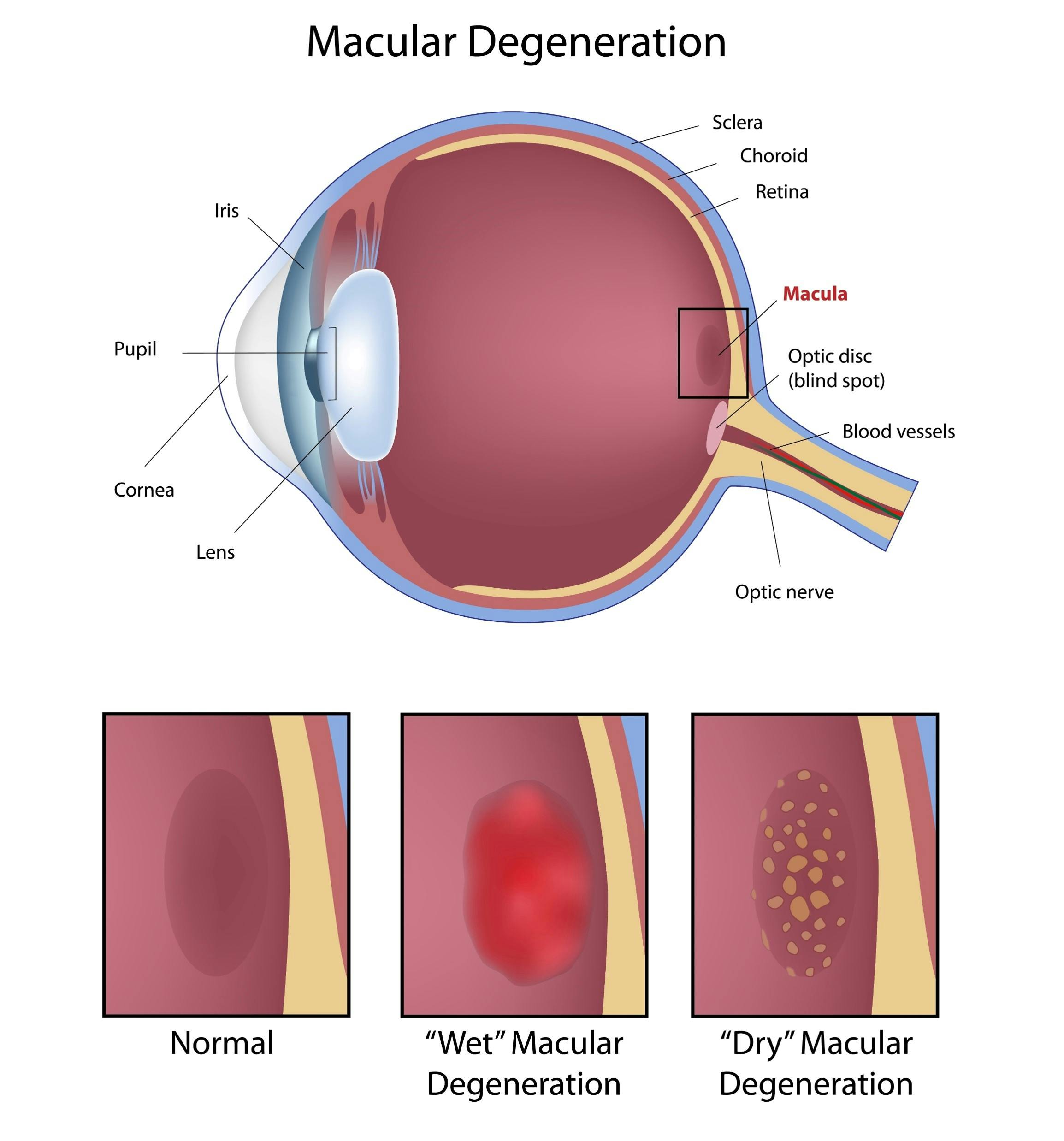
Macular degeneration can lead to blindness, but can it be prevented?
Quick: What’s the leading cause of vision loss in people over 50? Cataracts? Glaucoma?
Nope. It’s age-related macular degeneration (AMD).
AMD is a deterioration of the macula, which is the part of the eye that processes what you see directly in front of you. AMD blurs the central vision you need to see straight ahead. It usually begins affecting people in their 50s and 60s.
On a recent “Voices of UMass Chan” podcast, ophthalmology expert Johanna Seddon, M.D. described the life-altering consequences of AMD.
“[AMD leaves you] unable to drive a car, write, read,” she said. “And the most devastating thing I hear from my patients is that they can no longer see the faces of the people that they love.”
Around 11 million people in the United States have some form of age-related macular degeneration, and that number is expected to double to nearly 22 million by 2050.
The exact cause of AMD is unknown.
Types and symptoms
There are two types of AMD: wet and dry. The most common form is dry, which develops slowly over several years. Wet AMD is less common but typically progresses faster and can cause the complete loss of central vision in one or both eyes.

In its early stages, AMD doesn’t have many signs or symptoms, so people often don’t realize they have it. As the disease progresses, people will notice certain symptoms, including:
- Blurry or fuzzy vision
- Difficulty recognizing familiar faces
- Straight lines appearing wavy
- A dark, empty area or blind spot in the center of vision
- Loss of central vision
Learn more about Medicare's vision coverage
There is no cure for AMD, but with early detection, you may be able to slow the progression of the disease with dietary supplements called AREDS 2.
The progression of the less common wet AMD may also be slowed with medication and laser treatment.
Preventive steps to take
While you can’t do much about your age or genes, there’s a lot you can do to reduce your risk of AMD.
- Quit smoking. It’s a tough habit to kick, but your body will thank you once you do. Tips and support are out there if you’re ready to quit today.
- Wear sunglasses and hats. Sun exposure to the eyes may increase the risk of AMD.
- Eat a diet rich in fruits and dark green leafy vegetables. These foods are a great source of nutrients like vitamins C and E, Beta-Carotene, zinc, and copper, which can reduce the risk of late, more severe AMD by 25%.
- Maintain a healthy weight. Practice good dietary and exercise habits to prevent obesity and reduce the risk of more severe AMD. Ask your doctor for help if weight management is difficult.
- Know your family’s medical history. It’s helpful to know if AMD runs in your family so you can be vigilant about potential symptoms.
- Get regular eye tests. Be sure that your eye doctor includes a check of the macula. This might include a visual acuity test, pupil dilation, and other basic diagnostic tests.
Staying fit and on top of your health is great for your whole body, including your peepers!
Risk factors
Several factors can contribute to your risk of age-related macular degeneration:
- Age. As its name suggests, your age is the biggest risk factor in getting the disease. You’re at highest risk after age 55.
- Family history. Genetics play a role in up to 70 percent of AMD cases, so if you have a close family member who has suffered from the disease, you are at greater risk for it yourself.
- Race. Macular degeneration is more common among White people. Black Americans appear to have the lowest risk.
- Smoking. Smokers are 4 times more likely to get AMD than people who have never smoked.
- Obesity. Studies show that being obese may increase your chance of having more severe AMD.
Make sure your eye doctor is aware of your risk factors at your next check-up.
How Medicare fits in
Original Medicare does not cover routine eye exams. But if you do have age-related macular degeneration, Medicare Part B may cover diagnostic tests and treatments.
If you have risk factors for macular degeneration, consider purchasing a Medicare Advantage plan with coverage for routine annual eye exams.
Additional resources
- ClearMatch Medicare: Find a Medicare Plan
- UMass Medical School: Johanna Seddon Discusses Macular Degeneration
- Bright Focus Foundation: Age-Related Macular Degeneration Facts & Figures
- National Eye Institute: AREDS 2 Supplements for Age-Related Macular Degeneration
- Annual Reviews: Age-Related Macular Degeneration Genetics & Biology Coming Together
- Macular Society: Smoking and Sight Loss
- National Library of Medicine: Overweight, Obesity, and Risk of Age-Related Macular Degeneration
- Centers for Disease Control & Prevention: Learn About Age-Related Macular Degeneration


